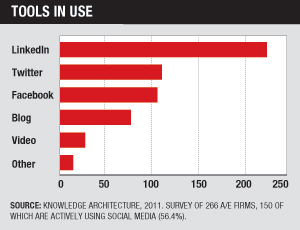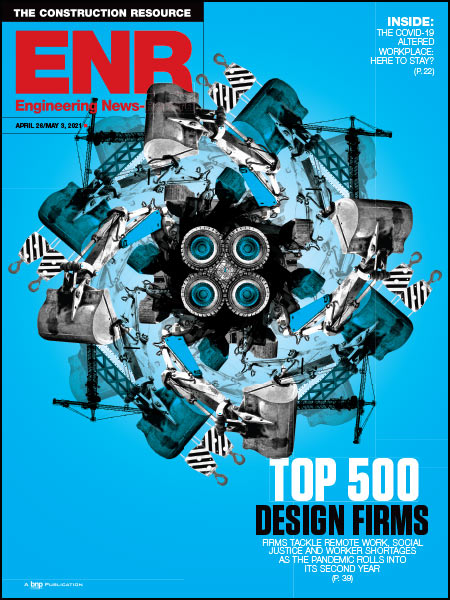
Construction companies are becoming active users of social media, but much of the chatter is hidden from view.
"The consumer social networks, such as Facebook and Twitter, are really different from what's required for what we call the enterprise social network," says Adam Pisoni, chief technology officer and co-founder of Yammer.
More than 300 construction companies now subscribe to Yammer, which resembles Facebook but is only available to people whose e-mail addresses match up with their employers' corporate accounts. The service allows employees to create profiles, join groups and communicate with each other electronically.
One of Yammer's largest construction users, whose name it would not disclose to ENR, has 10,000 users in 20 countries. You will not find any of its conversations on the open web, though.
"We have banks and [pharmaceutical] companies on Yammer, and they just can't have the conversations public," Pisoni says. "In fact, it is just how bad their communication has been under heavy regulation that it opens up a huge opportunity to add transparency and open communication within their company."
Arup, an ENR Top 500 design firm, has won awards for developing its own kind of social media called the Arup Knowledge Management System, which went online in 2002, long before "social media" was a household phrase.
"People who are new to the firm describe it as Arup Facebook," says Fiona Cousins, a principal in Arup's New York City office. The system allows Arup's 10,000 global employees to create profiles, establish special-interest groups and communicate through private forums.
Private networks help employees gain knowledge without tipping off the competition. On the day ENR spoke with Cousins recently, she received a note about shadow flicker from wind turbines, information about BREEAM (a U.K.-based rating system for green buildings) and a question about building codes in Nigeria, all over the Arup network.
"You might ask a question about why your humidifier is acting in a particular way," says Cousins. "It becomes a kind of register of information."
Such private networks help companies cut down on individuals e-mailing each other, establish professional dialogue across geographic boundaries and keep institutional knowledge in-house as employees come and go.











Post a comment to this article
Report Abusive Comment